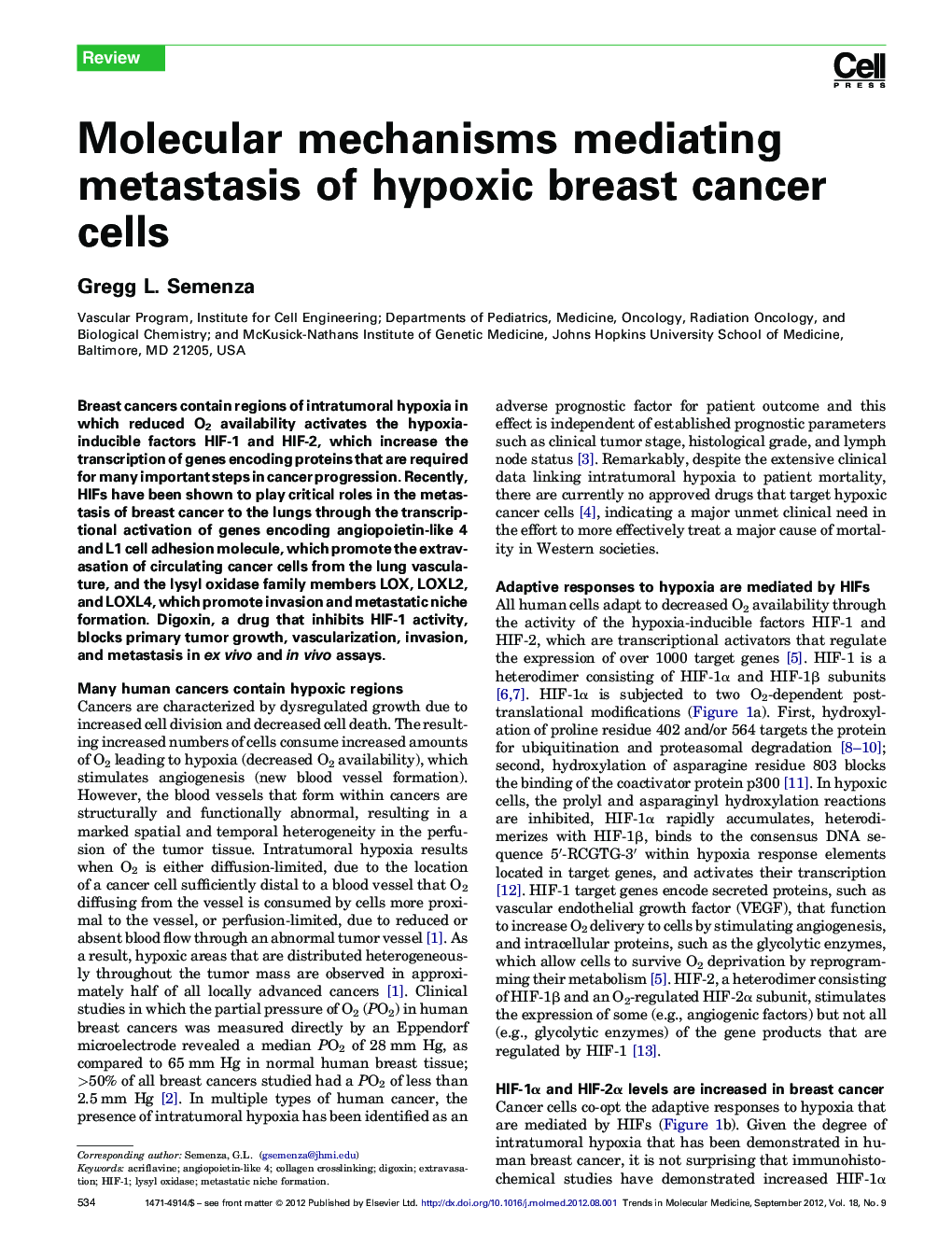| Article ID | Journal | Published Year | Pages | File Type |
|---|---|---|---|---|
| 2838653 | Trends in Molecular Medicine | 2012 | 10 Pages |
Breast cancers contain regions of intratumoral hypoxia in which reduced O2 availability activates the hypoxia-inducible factors HIF-1 and HIF-2, which increase the transcription of genes encoding proteins that are required for many important steps in cancer progression. Recently, HIFs have been shown to play critical roles in the metastasis of breast cancer to the lungs through the transcriptional activation of genes encoding angiopoietin-like 4 and L1 cell adhesion molecule, which promote the extravasation of circulating cancer cells from the lung vasculature, and the lysyl oxidase family members LOX, LOXL2, and LOXL4, which promote invasion and metastatic niche formation. Digoxin, a drug that inhibits HIF-1 activity, blocks primary tumor growth, vascularization, invasion, and metastasis in ex vivo and in vivo assays.
